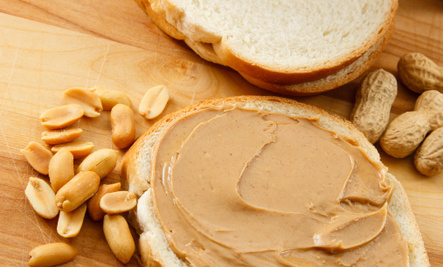Peanut
- Delicious, crunchy, and nutty peanuts are one of the popular oil seeds known to humankind since centuries. The kernels are enriched with many noteworthy health-benefiting nutrients essential for optimum health and wellness. They are actually legumes but carry almost all the qualities of other popular edible kernels such as pistachio, almonds, etc.
- Botanically, they are small sized, underground fruit pods of plant belonging to the Fabaceae family, in the genus, Arachis. Some of the common names are groundnut, earthnuts, etc.
- Peanut is a small annual dicotyledon herb growing up to a foot above the ground. It is thought to have originated in the Central Americas and from where it spread to rest of the world through Spanish explorers. Today, it is one of the widely cultivated oil-seed and established prime commercial crop in China, India, African nations, and the United States of America.
Contents
Benefits
- Peanuts are rich in energy (567 calories per 100 g) and contain health benefiting nutrients, minerals, antioxidants and vitamins that are essential for optimum health.
- They compose sufficient levels of mono-unsaturated fatty acids (MUFA), especially oleic acid. MUFA helps lower LDL or “bad cholesterol” and increaseS HDL or “good cholesterol” level in the blood. Research studies suggest that Mediterranean diet which is rich in monounsaturated fatty acids help to prevent coronary artery disease and stroke risk by favoring healthy blood lipid profile.
- Peanut kernels are good source of dietary protein; compose fine quality amino acids that are essential for growth and development.
- Research studies have shown that peanuts contain high concentrations of poly-phenolic antioxidants, primarily p-coumaric acid. This compound has been thought to reduce the risk of stomach cancer by limiting formation of carcinogenic nitrosamines in the stomach.
- Peanuts are an excellent source of resveratrol, another polyphenolic antioxidant. Resveratrol has been found to have protective function against cancers, heart disease, degenerative nerve disease, Alzheimer’s disease, and viral/fungal infections.
- Furthermore, studies suggest that resveratrol may reduce stroke risk through altering molecular mechanisms in the blood vessels (reducing susceptibility to vascular damage through decreased activity of angiotensin, a systemic hormone responsible for blood vessel constriction that would elevate blood pressure), and by increasing production of vasodilator hormone, nitric oxide.
- Recent research studies suggest that roasting/boiling enhances antioxidant bio-availability in the peanuts. It has been found that boiled peanuts have two and four-fold increase in isoflavone antioxidants biochanin-A and genistein content, respectively. (Journal of agricultural and food chemistry).
- The kernels are an excellent source of vitamin E (a-tocopherol); containing about 8 g per100 g. vitamin E is a powerful lipid soluble antioxidant which helps maintain the integrity of cell membrane of mucus membranes and skin by protecting from harmful oxygen free radicals.
- The nuts are packed with many important B-complex groups of vitamins such as riboflavin,[[niacin[[, thiamine, pantothenic acid, vitamin B-6, and folates. 100 g of peanuts provide about 85% of RDI of niacin, which contribute to brain health and blood flow to brain.
- The nuts are rich source of minerals like copper, manganese, potassium, calcium, iron, magnesium, zinc, and selenium.
- Just a handful of peanuts per day provides enough recommended levels of phenolic antioxidants, minerals, vitamins, and protein.
Cautions
- Peanut allergy is a type of hypersensitivity response in some people to food substances prepared using these nuts. The resultant over-reaction of the immune system may manifet as severe physical symptoms like vomiting, stomach-pain, swelling of lips and throat leading to breathing difficulty, chest congestion, and sometimes death. It is, therefore, advised to avoid any food preparations that contain peanut products in these individuals.
- Peanuts are one of the crops that are susceptible to fungal (mold) infection, especially by aspergillus flavus which produces aflatoxin. Aflatoxin is a very powerful and dangerous known carcinogen that may cause liver cirrhosis and cancer. Roasting helps reduce toxin levels in these nuts and thus offers some protection against aflatoxin.
Scientific name
Arachis hypogaea.

